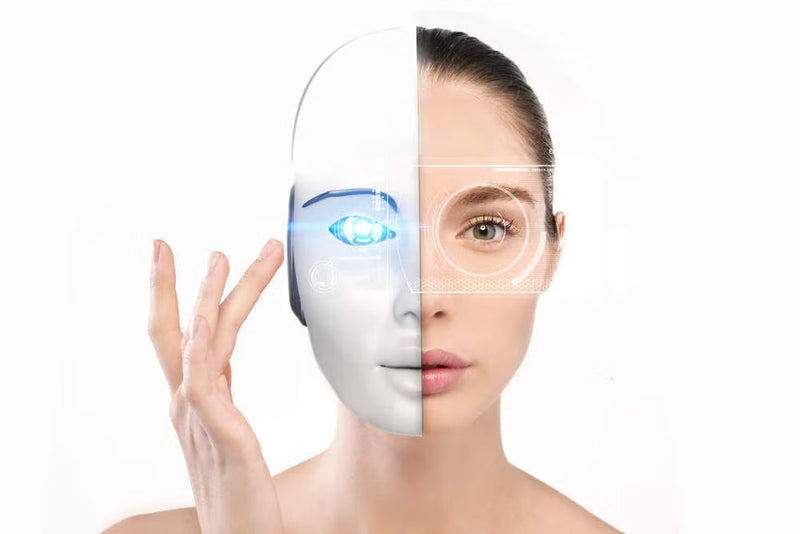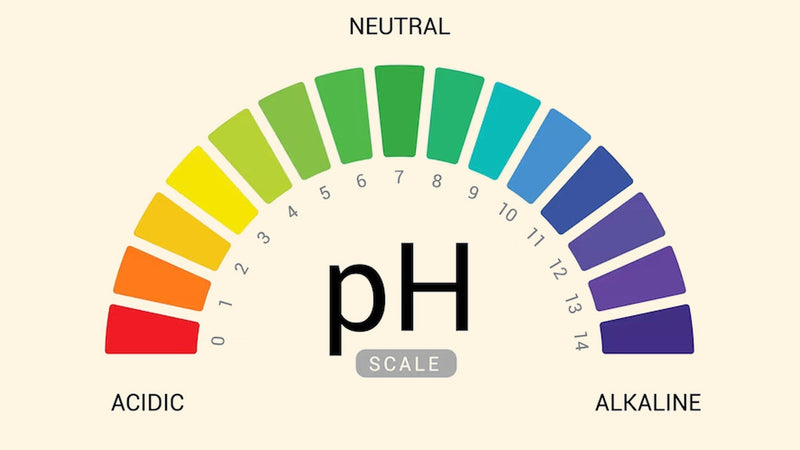

The Future of Beauty: How AI and Data Are Redefining Personalized Skincare
The beauty industry is undergoing a revolutionary transformation, moving away from the one-size-fits-all approach that has dominated for decades toward truly personalized, data-driven skincare solutions. At the heart of this transformation lies artificial intelligence (AI) and advanced data analytics—technologies that are fundamentally redefining how we understand, analyze, and address individual skin needs.
For years, consumers have been forced to navigate overwhelming product aisles, confusing ingredient lists, and generic marketing claims, often spending hundreds or thousands of dollars on products that don't address their specific concerns. The result has been frustration, wasted resources, and suboptimal results. But the convergence of AI, machine learning, computer vision, and big data analytics is changing this paradigm entirely.
Today's cutting-edge beauty brands are leveraging sophisticated algorithms that can analyze thousands of data points—from skin texture and pigmentation to environmental factors and genetic predispositions—to create hyper-personalized skincare recommendations and custom formulations. This isn't just about better marketing; it's about applying scientific precision to beauty, creating solutions that are as unique as each individual's skin biology.
The Limitations of Traditional Skincare: Why Personalization Matters
Traditional skincare has operated on a fundamentally flawed premise: that skin types can be neatly categorized into a few broad groups (oily, dry, combination, sensitive) and that products designed for these categories will work universally within each group. However, human skin is far more complex and individualized than these simple classifications suggest.
Two people with "oily skin" may have completely different underlying causes—one might have overactive sebaceous glands due to hormonal fluctuations, while another might be experiencing barrier dysfunction that triggers compensatory oil production. Similarly, "sensitive skin" could result from genetic predisposition, environmental damage, microbiome imbalance, or allergic reactions to specific ingredients.
This oversimplification has led to a trial-and-error approach that wastes time, money, and often exacerbates skin issues. Studies show that the average consumer tries 6-8 different skincare products before finding one that works effectively for their specific needs. This inefficiency represents not just financial waste but also potential damage to the skin barrier from inappropriate formulations.
True personalization requires understanding the unique combination of genetic, environmental, lifestyle, and biological factors that influence each person's skin health. This level of individualized analysis was impossible with traditional methods but is now achievable through AI-powered platforms that can process and interpret vast amounts of complex data in real-time.
The Personalization Imperative
Human skin varies by over 10,000 unique parameters when considering genetics, environment, lifestyle, and current condition. AI is the only technology capable of processing this complexity to deliver truly personalized skincare solutions.
AI-Powered Skin Analysis: Seeing Beyond the Surface
The foundation of personalized skincare lies in accurate skin assessment, and AI has dramatically enhanced our ability to analyze skin conditions with unprecedented precision. Modern AI-powered skin analysis tools use computer vision algorithms and deep learning models trained on millions of skin images to detect subtle patterns and conditions that even experienced dermatologists might miss.
These advanced systems can analyze high-resolution images captured through smartphone cameras or specialized devices to measure parameters like pore size, wrinkle depth, pigmentation irregularities, redness levels, and skin texture with clinical-grade accuracy. Some platforms can even detect early signs of conditions like melasma, rosacea, or pre-cancerous lesions by identifying patterns invisible to the naked eye.
Beyond visual analysis, some AI systems incorporate additional data streams for even more comprehensive assessment. Environmental sensors can track local pollution levels, UV index, and humidity that affect skin health. Wearable devices can monitor sleep quality, stress levels, and hydration status. Genetic testing can reveal predispositions to conditions like acne, aging, or sensitivity. All of this data feeds into AI algorithms that create a complete picture of an individual's skin ecosystem.
AI Skin Analysis Capabilities
Advanced parameters measured by AI-powered systems:
- Pore size and distribution patterns with 95% accuracy
- Wrinkle depth and elasticity measurements comparable to clinical devices
- Pigmentation analysis detecting 12+ types of discoloration
- Redness and inflammation quantification for sensitive skin assessment
- Environmental impact tracking based on location and weather data
Machine Learning Algorithms: The Brains Behind Personalized Recommendations
Once AI systems have gathered comprehensive skin data, machine learning algorithms take over to process this information and generate personalized recommendations. These algorithms are trained on massive datasets that include clinical research, ingredient efficacy studies, user feedback, and dermatological expertise.
Unlike simple rule-based systems that follow predetermined if-then logic, modern machine learning models can identify complex patterns and relationships between different factors. For example, an algorithm might learn that individuals with combination skin living in high-pollution urban environments respond better to antioxidant-rich formulations with specific molecular weights, while those with the same skin type in rural areas benefit more from barrier-repair focused products.
These algorithms continuously improve through feedback loops. As more users provide data about their results and experiences, the system becomes increasingly sophisticated at predicting what will work for similar skin profiles. This creates a virtuous cycle where personalization becomes more accurate over time, benefiting both individual users and the broader community.
Some advanced platforms even use reinforcement learning, where the algorithm actively experiments with different recommendations for similar users and learns from the outcomes. This approach mimics the scientific method, systematically testing hypotheses about ingredient combinations and formulations to optimize results.
Custom Formulation Technology: From Data to Personalized Products
The ultimate expression of AI-powered personalization is the ability to create custom skincare formulations tailored to individual needs. Leading beauty tech companies are now combining AI analysis with automated compounding systems that can mix precise concentrations of active ingredients based on algorithmic recommendations.
These custom formulation platforms work by first analyzing the user's skin data through AI-powered assessment. The algorithm then determines the optimal combination of base ingredients, active compounds, and delivery systems needed to address specific concerns. Automated mixing stations then precisely combine these ingredients in real-time, creating a product that is literally made to order.
This approach solves several traditional problems in skincare. First, it eliminates the need for preservatives and stabilizers required in mass-produced products, since custom formulations are made fresh and used quickly. Second, it allows for optimal concentrations of active ingredients without the compromise required to make products stable for mass distribution. Third, it enables the creation of formulations that would be impossible to produce at scale due to ingredient incompatibilities or stability issues.
For example, an AI system might determine that a user needs both vitamin C (which is unstable) and retinol (which can be irritating) but at specific concentrations and with particular delivery systems that minimize interaction. A custom formulation system can create this precise combination fresh for each user, something that would be impossible in traditional manufacturing.
The Skin Microbiome Revolution: AI Meets Microbial Science
One of the most exciting frontiers in personalized skincare is the integration of skin microbiome analysis with AI technology. The skin microbiome—the complex ecosystem of bacteria, fungi, and other microorganisms living on our skin—plays a crucial role in skin health, barrier function, and immune response.
Advanced AI platforms are now incorporating microbiome data into their personalization algorithms. Users can provide skin swab samples that are analyzed through DNA sequencing to identify the specific microbial communities present on their skin. AI algorithms then interpret this complex data to understand microbiome balance, diversity, and potential imbalances that could contribute to conditions like acne, eczema, or sensitivity.
The algorithms can recommend specific prebiotic, probiotic, or postbiotic ingredients that will support healthy microbial communities while avoiding ingredients that might disrupt the delicate balance. This represents a fundamental shift from treating symptoms to addressing root causes at the microbial level.
Research has shown that microbiome-informed skincare can be significantly more effective than traditional approaches. A 2023 study published in Nature Microbiology found that personalized microbiome-based recommendations improved skin barrier function by 47% compared to standard skincare regimens in participants with sensitive skin.
Real-Time Adaptation: Skincare That Evolves With You
Perhaps the most revolutionary aspect of AI-powered skincare is its ability to adapt in real-time as your skin changes. Traditional skincare routines are static—you choose products and stick with them for months or years, regardless of how your skin's needs evolve due to seasonal changes, lifestyle factors, or aging.
AI-powered platforms can continuously monitor your skin condition through regular photo uploads, environmental data, and user feedback. The algorithms detect subtle changes in your skin's condition and automatically adjust recommendations accordingly. For example, if the system detects increased dryness during winter months, it might recommend adding a richer moisturizer or increasing ceramide concentration. If it notices increased oil production during summer, it might suggest lighter formulations with different active ingredients.
This dynamic approach ensures that your skincare routine remains optimally effective throughout the year, adapting to your changing needs without requiring you to become an expert in ingredient science or constantly research new products. The AI becomes your personal skincare expert, continuously learning and evolving with your skin.
Real-Time Adaptation Features
How AI skincare evolves with your changing needs:
- Seasonal formulation adjustments based on environmental data
- Lifestyle adaptation for travel, stress, or sleep changes
- Aging progression tracking with proactive ingredient recommendations
- Hormonal cycle synchronization for women's skincare needs
- Continuous learning from user feedback and results tracking
Ethical Considerations and Data Privacy in Beauty Tech
As AI-powered skincare becomes more sophisticated, important ethical considerations around data privacy and algorithmic bias must be addressed. The intimate nature of skin and health data requires robust privacy protections and transparent data usage policies.
Leading beauty tech companies are implementing strict data governance practices, including end-to-end encryption, anonymization of personal data, and clear opt-in consent processes. Many are also adopting privacy-by-design principles, where data protection is built into the system architecture from the beginning rather than added as an afterthought.
Algorithmic bias is another critical concern. AI systems trained on limited or non-diverse datasets may perform poorly for certain skin tones, ethnicities, or age groups. Responsible companies are actively working to ensure their training datasets represent global diversity and are continuously testing for bias in their algorithms. Some are even partnering with dermatologists specializing in diverse skin types to validate their systems across different populations.
Transparency is also essential. Users should understand how AI recommendations are generated and have the ability to override algorithmic suggestions based on their personal preferences or professional advice from dermatologists. The goal is to enhance human expertise, not replace it entirely.
The Personalized Beauty Revolution
The integration of AI and data analytics into skincare represents more than just a technological advancement—it's a fundamental reimagining of how beauty products are developed, recommended, and experienced. By moving from generic solutions to hyper-personalized approaches, the beauty industry is finally acknowledging the unique complexity of human skin and providing solutions that respect this individuality.
The future of beauty lies in intelligent systems that can understand your skin's unique needs, adapt to your changing circumstances, and deliver precisely formulated solutions that address root causes rather than just symptoms. This isn't about replacing human expertise with machines—it's about augmenting dermatological knowledge with computational power to create skincare that is truly as unique as you are.
As these technologies continue to evolve and become more accessible, we can expect to see even more sophisticated personalization, including integration with health data from wearables, predictive analytics for preventing skin issues before they occur, and seamless connections between at-home care and professional dermatological treatment. The result will be a beauty ecosystem that is not only more effective but also more efficient, sustainable, and respectful of individual differences. The future of beauty is personal, precise, and powered by intelligence.


















